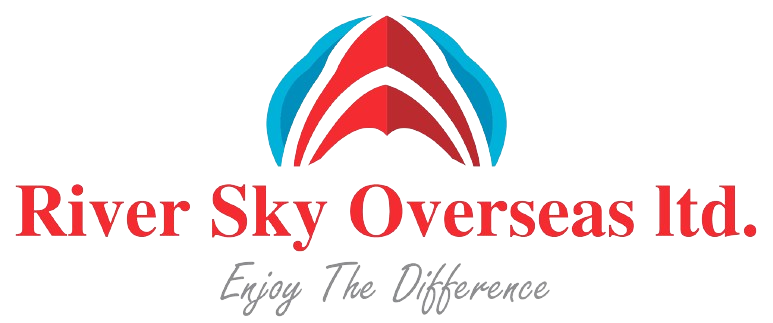To work in Canada as a Bangladeshi national, you need to obtain a work permit and potentially a visa, depending on the type of work permit you apply for. Canada has several pathways for foreign nationals to work, including temporary work permits and pathways to permanent residence. Here’s a detailed guide on how to navigate this process:
1. Types of Canadian Work Permits:
- Temporary Work Permit: For those who have a job offer from a Canadian employer.
- Employer-Specific Work Permit: Tied to a specific employer and job.
- Open Work Permit: Allows you to work for any employer in Canada, but is typically available only in specific situations, such as for spouses of international students or skilled workers.
- LMIA-Required Work Permit: Requires the employer to obtain a Labour Market Impact Assessment (LMIA).
- LMIA-Exempt Work Permit: For jobs that are exempt from the LMIA requirement, such as intra-company transferees, participants in international agreements like NAFTA, or under certain public policy considerations.
2. Eligibility Requirements:
- Job Offer: You generally need a job offer from a Canadian employer. For some work permits, the employer must obtain a positive LMIA.
- Proof of Qualifications: Depending on the job, you may need to demonstrate that you have the necessary education, skills, or experience.
- Good Health and Character: You may need to undergo a medical exam and provide a police clearance certificate.
- Financial Support: You need to prove that you can support yourself and any family members during your stay in Canada.
3. Application Process:
Step 1: Job Offer and LMIA (if required)
- Secure a Job Offer:
- Find a Canadian employer who is willing to hire you. The employer must provide a formal job offer letter detailing the position, salary, and working conditions.
- Labour Market Impact Assessment (LMIA):
- If required, your employer must apply for an LMIA through Employment and Social Development Canada (ESDC). The LMIA confirms that hiring a foreign worker will not negatively impact the Canadian labor market.
- LMIA-Exempt Work Permits:
- Some job categories are exempt from the LMIA requirement, such as those under international agreements (e.g., CUSMA, formerly NAFTA), or certain categories of intra-company transfers.
Step 2: Work Permit Application
- Online or Paper Application:
- You can apply for a work permit online through the Immigration, Refugees, and Citizenship Canada (IRCC) website or on paper, depending on your situation.
- Required Documents:
- A valid passport.
- Job offer letter.
- Copy of the LMIA (if applicable) and the LMIA number.
- Completed application forms (IMM 1295 for a work permit).
- Proof of your qualifications (e.g., educational certificates, work experience).
- Proof of sufficient funds.
- Medical examination results (if required).
- Police clearance certificate (if required).
- Passport-sized photographs.
- Application Fee:
- Pay the application fee online. The fee for a work permit application is generally CAD $155. Additional fees may apply if a biometric fee is required.
- Biometrics:
- You may need to provide biometrics (fingerprints and a photo) as part of your application. This typically requires an appointment at a Visa Application Center (VAC) in Bangladesh.
- Visa Processing:
- Processing times vary depending on the type of permit and the volume of applications. It can take a few weeks to several months.
- Outcome Notification:
- If your application is successful, you will receive a Port of Entry (POE) Letter of Introduction, which you must present when entering Canada. This letter is not your work permit but indicates that you are approved to work in Canada.
Step 3: Entering Canada and Work Permit Issuance
- Travel to Canada:
- Once you have your POE Letter of Introduction, you can travel to Canada. You must present the letter to a border services officer at your port of entry.
- Issuance of Work Permit:
- The work permit is issued at the port of entry. The border services officer will issue your work permit based on the details in the POE letter.
4. Additional Considerations:
- Family Members: Your spouse or common-law partner and dependent children can apply to accompany you to Canada. They may be eligible for an open work permit or study permit.
- Permanent Residency Pathways: Some work permits can be a stepping stone to permanent residency through programs like the Canadian Experience Class (CEC) or the Provincial Nominee Program (PNP).
- Extensions and Renewals: If you want to extend your stay in Canada or change employers, you must apply for an extension or a new work permit before your current permit expires.
5. Consulting and Assistance:
- Immigration Consultants: Consider consulting a licensed immigration consultant or lawyer to help navigate complex cases or specific issues.
- Job Search: Use job search websites like Job Bank, LinkedIn, or Indeed to find employers in Canada who are willing to hire foreign workers.
Conclusion:
Securing a work permit to work in Canada as a Bangladeshi national involves a structured process that begins with obtaining a job offer and possibly an LMIA. Follow the application process carefully, ensuring all documentation is complete and accurate, and be prepared for your journey to Canada with the necessary approvals in hand.










